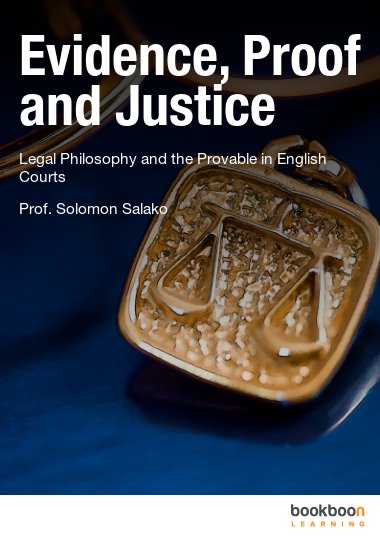A lot has happened in the last decade on rationalising the congeries of rules of evidence applied in English courts. Scientific evidence is gradually replacing evidence based on the principle of orality or spontaneity. And yet, judges are not scientifically trained. There is a convergence of the English adversarial system, especially in criminal proceedings, with the Continental inquisitorial system; and, what is more, the proliferation of statutes on the law of evidence and the wide discretionary powers vested in judges to admit all types of evidence raise serious issues of justice and ‘open impartiality’ as distinct from ‘close impartiality’.
It is the object of this book to use legal philosophy to analyse the transformation of the rules of evidence in English courts with a view to teasing out the benefits and portents of the transformation and proffering suggestions for reform.
I seize this opportunity to thank Ms Karin Hamilton Jakobsen and the editorial staff of Ventus Publishing, Denmark, for their cooperation. Many thanks to Ms Sue Wiseman for using her immense word-processing skills to type the manuscript within a short space of time.
The book is dedicated to Diane.
Solomon E. Salako
Liverpool,
United Kingdom.
July 2010.


